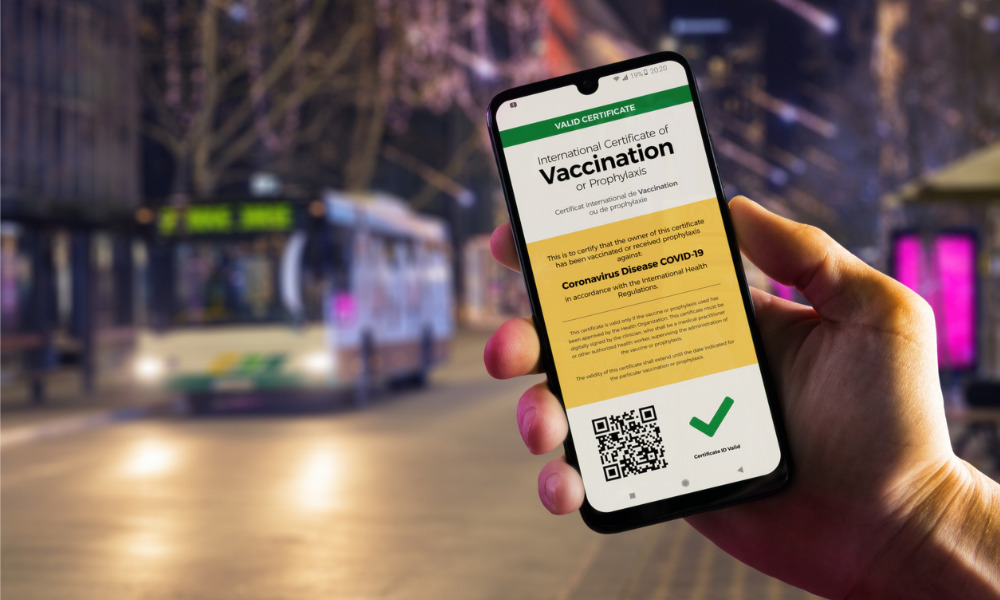
Make a mistake and you risk a hefty fine – or a lawsuit

Ontario's vaccine passport scheme will begin today for all high-risk settings, with patrons now required to present proof of vaccination before gaining entry to the following establishments;
The scheme does not apply to essential businesses, such grocery and retail stores – nor does it apply to children under the age of 12. Furthermore, the programme also accepts medical exemptions.
Read more: Vaccine passports: What are the legal ramifications for Ontario employers?
With the vaccine scheme in full effect, patrons are required to present proof of vaccination to all businesses, with employees being called on to check the passports thoroughly and regularly.
According to government guidelines, businesses that fail to comply with the scheme could be fined up to $1,000, while individuals can be fined $750. Despite these penalties, CBC reported that enforcement from the police will be "gentle at first." This leaves all responsibilities in the hands of individual employers and organizations - a concern weighing heavy on many HR leaders.
A report from CP24 found that employers are concerned about giving more tasks to their already understaffed workforce, while some owners are wary of pushback or reaction from customers should they get turned away from establishments. Government guidelines recommend that in the events of threats or acts of violence, law enforcement should be contacted immediately.
"The police should be contacted in these situations. Harassment may also be a matter that falls under the Criminal Code or Ontario's Human Rights Code," the statement read.
In regards to non-compliance, Ontario Health Minister Christine Elliott told CP24 in an interview that they don’t think it’ll be a major issue. She added that she’s hoping pub patrons will adjust well to the scheme - much like they did to previous rule changes.
"I guess we'll cross that bridge when we come to it," she told the news channel.
Read more: Ontario mandates vaccination policy for health sector
To get a hold of a vaccine passport, residents will need to apply via province's official website. You can print or save the document as a pdf file on an electronic device to present at establishments on entry. Those with medical exemptions can show a doctor's note to allow access. Ontario also promised a digital vaccine certificate with a unique quick-response (QR) code to make verification faster for businesses. This will become available starting October 22.
"Following this date, patrons will be able to provide a paper copy or a digital copy of their enhanced vaccine certificate with QR to provide proof of vaccination," the guidelines said, while maintaining that the older version of the vaccine proof will still be allowed.
The issue of whether or not an employee should provide a vaccine passport is a complicated and, as of yet, unanswered question. The decision, as of now, ultimately lies with individual employers. Certain industries have mandated vaccines, however there’s been no sweeping rule changes as of yet. That is unless, of course, an employer decides to implement a proof-of-vaccination policy – which many are now doing.
“So far, the Ontario Government’s announcements of a vaccine passport requirement apply to persons who want to visit or enter certain types of public establishments or settings, but not to the employees of those workplaces,” Peter Straszynski, partner at Torkin Manes LLP, told HRD.
“An employer may require a vaccine passport of its employees, the same way an employer can require mandatory vaccination in the workplace. There’s really not any material difference between the two. Having said that, employers should consider whether such a requirement is appropriate for their workplace and, importantly, must remember that there are exceptions where employees may have legitimate medical or other ground to refuse to vaccinate - and consequently to register for a passport.”